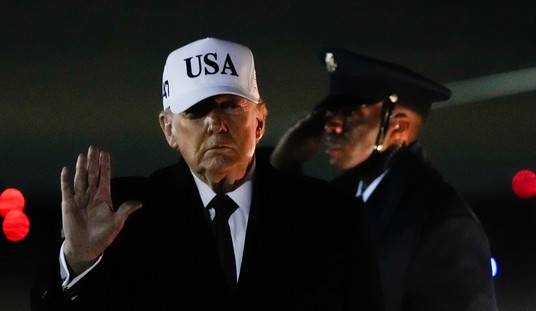You had one job.
Technically, bankers have a lot of different jobs, but in the end, they all come down to one basic skill: Knowing where all the money is, all the time.
The big vaults? The armed guards? The monthly statements? The paperwork… the endless paperwork? All of those things, and even the serious suits they wear, are supposed to send a message: We can account for your money, right down to the penny.
Things get more complicated at the macroscale, where the Federal Reserve and other nations’ central banks operate. Their job is to know so much about the economy that they can reliably change the number of dollars, and their value and flow, in order to keep things running as smoothly as possible. If the Fed prints too many dollars, we might get a nasty bout of inflation. Too few, and nobody can take out a loan to buy a house or start a new business. They fine-tune interest rates, they provide liquidity when needed, and soak up excess liquidity when that’s called for. Sometimes they just conjure up a few trillion dollars without ever bothering to print them, in order to paper over bad times without any actual paper money. Weird, eh?
ASIDE: Whether central banks are any good at this, or whether any organization anywhere should have that kind of power, is a discussion for another day.
Central bankers are, at least in theory, some very smart and extremely knowledgeable people. So what’s a central banker to do when they print up a few hundred billion dollars and then watch them… vanish?
The Wall Street Journal reports (paywall) that in recent years central bankers have printed more actual banknotes than ever, “yet they seem to be disappearing off the face of the earth.” The story notes that the “value of U.S. dollars in circulation hit about $1.7 trillion last year,” which is “up from $1.2 trillion in 2013.” That’s half a trillion dollars in cold, hard cash, but with inflation stubbornly below 2% and growth stubbornly around 3%, no one can account for where the money went.
It’s like a blues song sung by a confused guy in a bespoke suit, instead of by someone whose woman just done took his truck and his paycheck.
This phenomenon isn’t limited to the U.S., either. In the same report, WSJ’s David Winning and James Glynn tell the story of Philip Lowe, governor of Australia’s central bank, who “estimated that about $2,000 in printed bills exists for every Australian.” Where most of it actually is, is the mystery.
I don’t think I’ve ever even seen that much cash all at once, outside of a mobster movie. And yet there are approximately 51,104,400,000 Australian dollars floating around out there, somewhere.
New Zealand’s central bank can only account for the whereabouts of about a quarter of the country’s cash holdings. The rest is… elsewhere.
My favorite quote from the story comes from Henk Esselink, head of the issue and circulation section in the ECB’s currency management division. He said, “Everyone says that they are not hoarding cash but the money is clearly somewhere.”
Ya think? I once found 30 whole dollars wadded up in my jeans pocket on laundry day, but aside from accidents like that, people don’t tend to lose a whole lot of cash. Certainly not $2,000 worth per person. And criminal activity can only account for so much of the missing money, especially in English-speaking countries where the rule of law mostly holds. Now Russians, you can picture them burying some serious rubles under the permafrost. Then there are the Chinese, who rather smartly try to get as much money out of their own country as they can. Where is all that going? It can’t all be invested in Vancouver real estate, can it?
Maybe people around the world really are stuffing untold jillions under metaphorical mattresses. We’ve spent years witnessing the slow-motion collapse of the global elite, as written about extensively here at PJMedia by our own Richard Fernandez. If the elites are crumbling, smart people look for hedges against collapse. So some of that missing cash might indeed be stuffed into safes or buried in the back yard. Some of it might have been converted into other stashable items, like gold, guns, ammo, and emergency rations.
But once the cash is converted, the people who sold the gold, guns, ammo, etc., they still have to put it… somewhere… right?
Well, where is it?











Join the conversation as a VIP Member